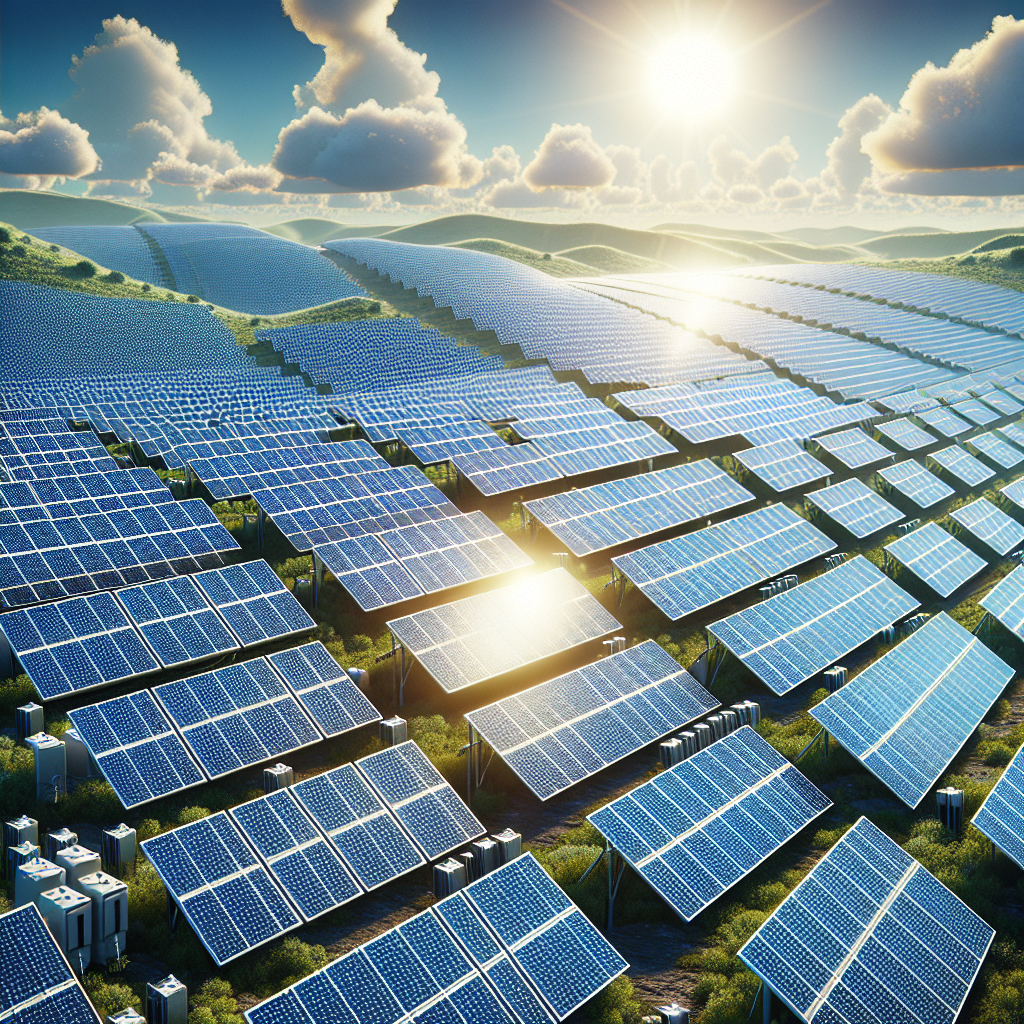SEFA Commits €6M to Boost Burkina Faso’s Solar Energy with Dédougou Plant
SEFA is a multi-donor trust fund managed by the African Development Bank, established to unlock private sector investments in renewable energy and energy efficiency in Africa.

- Country:
- Burkina Faso
In a major stride toward strengthening energy access and renewable development in West Africa, the Sustainable Energy Fund for Africa (SEFA), managed by the African Development Bank (AfDB), has approved a €6 million concessional finance package to support the development of the 18 MW Dédougou Solar Power Plant in Burkina Faso. This project represents a landmark investment in the country’s transition to clean, reliable, and affordable energy and is expected to significantly enhance energy access and affordability in the Sahel region.
Key Financial Commitments and Structure
The €6 million package comprises two components:
-
A €2.5 million senior concessional loan, and
-
A €3.5 million reimbursable grant.
These are complemented by additional funding from the Dutch Entrepreneurial Development Bank (FMO), which is extending a combination of subordinated and senior loans to complete the financing package. The financial commitment was formalized during a signing ceremony in Paris on July 18, 2025, which brought together a consortium of stakeholders including the African Development Bank, FMO, the project developer Qair, and legal and financial advisors A&O Shearman and Trinity International LLP.
Aligning with the Desert-to-Power Initiative
The Dédougou project is a flagship component of the African Development Bank’s Desert-to-Power initiative, a bold pan-African ambition to turn the Sahel into the world’s largest solar energy zone. The initiative aims to deliver up to 10 GW of solar-generated electricity across 11 countries and connect 250 million people to electricity by 2030.
The Dédougou Solar Power Plant is recognized as a priority project in Burkina Faso’s national Desert-to-Power roadmap. It is among the first independent power producer (IPP) projects in the country and will operate under a 25-year Power Purchase Agreement (PPA) with the national utility, Société Nationale d’Électricité du Burkina Faso (SONABEL).
Dr. Daniel Schroth, AfDB’s Director for Renewable Energy and Energy Efficiency, praised the collaboration and the catalytic nature of the investment:
“The Dédougou Solar PV project marks a significant milestone for Burkina Faso and the broader Sahel region. It demonstrates the transformative power of solar energy to drive inclusive and sustainable development. The catalytic support from SEFA was instrumental in unlocking this private sector-led project.”
Economic and Social Impact
The plant is projected to deliver major benefits for Burkina Faso, a country that continues to face challenges with energy reliability and affordability. Once operational, the Dédougou Solar Power Plant will:
-
Diversify the national energy mix, currently heavily reliant on costly imported fossil fuels.
-
Lower electricity generation costs, easing the financial burden on both SONABEL and consumers.
-
Enhance access to electricity, supporting industrial activity, job creation, and local economic growth.
-
Improve grid stability, especially in rural and underserved areas.
The project also integrates a robust Environmental and Social Management System (ESMS) to ensure that construction and operations are carried out responsibly, with measures in place to mitigate environmental risks and protect affected communities. These include community consultations, biodiversity management, and grievance redress mechanisms.
Qair’s Expanding Presence in Burkina Faso
The Dédougou plant is Qair’s second major solar investment in the country. The French renewable energy developer commissioned its first 24 MW solar plant in Zano in 2023, which helped pave the way for larger-scale private investments in the country’s renewable energy sector.
Abdoulaye Toure, Chief Financial Officer of Qair Africa, emphasized the strategic significance of the new project:
“This new financing from FMO and SEFA marks a significant milestone in Qair’s journey in Burkina Faso. We are deeply grateful to both institutions for their continued trust and support. After commissioning our first solar plant in Zano, this second project in Dédougou reflects our expanding footprint and aligns with Qair’s long-term strategy to accelerate the energy transition across Africa.”
Toward a Renewable Future in the Sahel
The Dédougou Solar Power Plant stands as a symbol of the growing potential of private sector-led renewable energy development in the Sahel. With concessional finance unlocking private capital, Burkina Faso is setting a precedent for scaling clean energy projects that not only reduce emissions but also enhance energy security, foster economic resilience, and improve the quality of life for millions.
The support from SEFA and FMO also illustrates the power of blended finance mechanisms to de-risk clean energy investments and drive transformative change in emerging markets. As global attention turns increasingly toward sustainable development, the success of the Dédougou project is expected to inspire replication across Africa.
About SEFA and Desert-to-Power
SEFA is a multi-donor trust fund managed by the African Development Bank, established to unlock private sector investments in renewable energy and energy efficiency in Africa. It provides technical assistance and concessional finance to support early-stage projects and catalyze public-private partnerships.
The Desert-to-Power initiative, spearheaded by the AfDB, aims to harness the region’s vast solar potential to spur economic growth, expand electricity access, and combat climate change in some of Africa’s most vulnerable and under-electrified regions.
ALSO READ
African Development Bank Approves $144.27M Loan to Boost Energy Access in Niger
Ethiopia and IFAD Launch $424M Project to Boost Climate Resilience in Lowlands
World Bank Grants $200M for ASCENT Zambia Project to Boost Clean Energy Access
India's Maritime Sector: Pioneering Sustainability and Climate Resilience
World Bank Reinforces Pacific Ties with Jobs, Climate Resilience and Local Reforms









